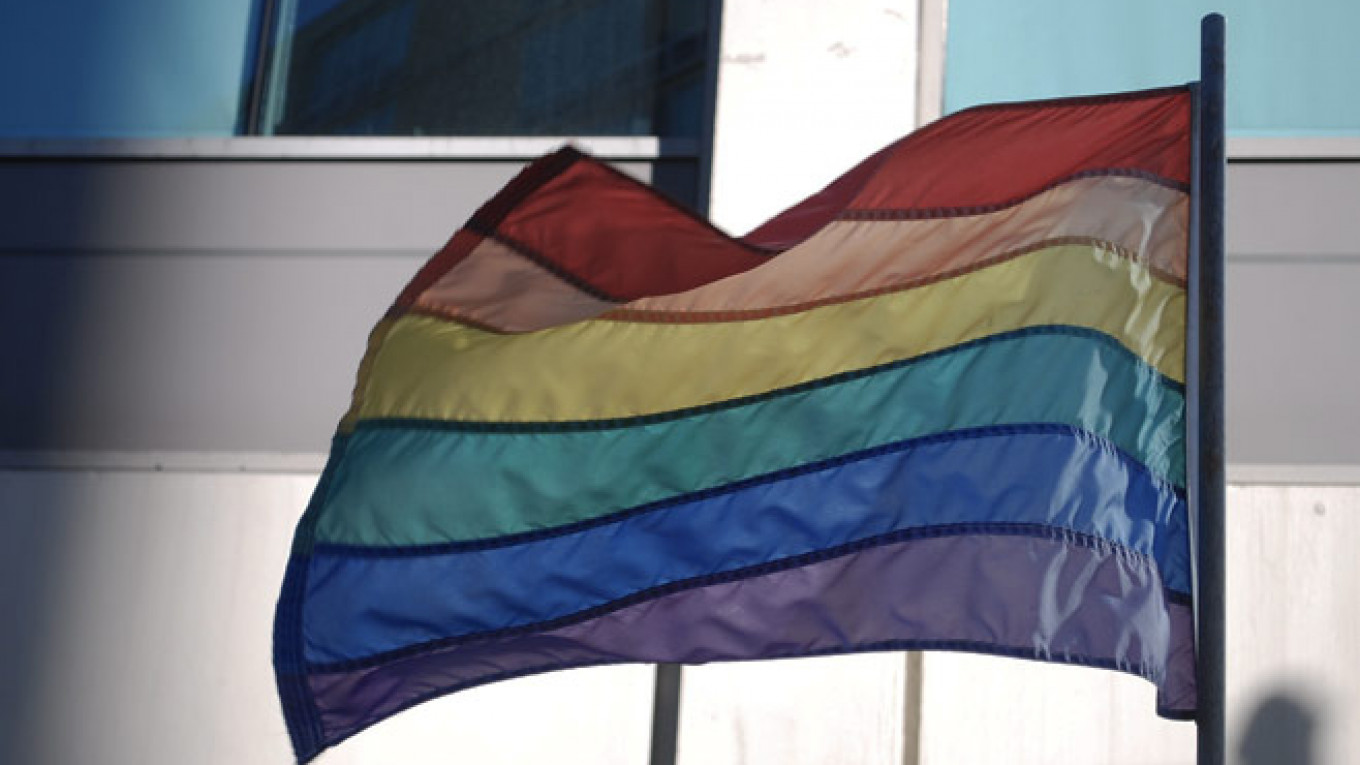More than half of Russians think that gay people should be either "liquidated" or isolated from society, according to a poll published Friday that showed a hardening of attitudes toward many minority groups in Russia in recent years.
The survey by the Levada Center, an independent pollster, is the latest in a series charting Russians' views on marginal social groups since 1989. It reveals a broad pattern of softening public opinion during the 1990s, followed by growing intolerance since Vladimir Putin became president in 2000.
Gay people, prostitutes, homeless people and members of fringe religious groups have all become less welcome in Russia during the past 15 years — a period that has seen democracy diminished, tighter state control of information and growth in the power of the Russian Orthodox Church.
However, intolerance toward those born with disabilities fell dramatically. In 1989, 23 percent of respondents thought disabled children should be liquidated and another 9 percent said they should be separated from society. Now, 2 percent advocate liquidation and 4 percent want separation.
Attitudes to Russia's LGBT community, on the other hand, have gotten worse. The data set begins in 1989, when sex between men was criminal under Soviet law and could carry a five-year jail sentence (the law didn't mention women). At the time, 35 percent of respondents to the Levada poll thought LGBT people should be liquidated, and 28 percent said they should be isolated from society.
Russian law became more liberal during the 1990s, largely thanks to Western political pressure, and public opinion seemed to follow. Gay sex was decriminalized in 1993 and in 1999 homosexuality was removed from a list of mental disorders. In that year, 15 percent of Russians wanted gay people liquidated, and 23 percent wanted them ostracized, while another 16 percent said they should be "helped."
But since then, intolerance has grown. Now, 21 percent of people want to see LGBT people liquidated, and another 37 percent advocate separating them from society, the poll found.
The increase reflects a bout of public homophobia in recent years. While Putin insists that gay Russians enjoy equal rights, hardline politicians and Orthodox clergy have damned gay people as "godless" and "non-human."
A law banning "gay propaganda" to minors was passed two years ago, and incidences of violence against homosexuals are common. One 23-year-old man was sodomized with a beer bottle and beaten to death in 2013 after telling friends in Volgograd that he was gay.
Earlier this year, two Russian journalists who filmed themselves walking hand-in-hand around Moscow were repeatedly insulted and manhandled by passers-by.
Another Levada poll in May found that 37 percent of people thought homosexuality was a disease that needed treating.
The fastest rise in intolerance recorded in the Levada study was toward religious sects.
Fewer than 20 percent of Russians wanted to liquidate or ostracize members of such sects in 1994, the first year the poll was held after the collapse of the Soviet Union and when religious movements were flourishing.
Now, 57 percent of those polled said they would liquidate or separate those people from society.
The survey polled 1,600 adults across Russia from Sept. 18-21. It had a margin of error of no more than 3.4 percent.
Contact the author at p.hobson@imedia.ru
A Message from The Moscow Times:
Dear readers,
We are facing unprecedented challenges. Russia's Prosecutor General's Office has designated The Moscow Times as an "undesirable" organization, criminalizing our work and putting our staff at risk of prosecution. This follows our earlier unjust labeling as a "foreign agent."
These actions are direct attempts to silence independent journalism in Russia. The authorities claim our work "discredits the decisions of the Russian leadership." We see things differently: we strive to provide accurate, unbiased reporting on Russia.
We, the journalists of The Moscow Times, refuse to be silenced. But to continue our work, we need your help.
Your support, no matter how small, makes a world of difference. If you can, please support us monthly starting from just $2. It's quick to set up, and every contribution makes a significant impact.
By supporting The Moscow Times, you're defending open, independent journalism in the face of repression. Thank you for standing with us.
Remind me later.






